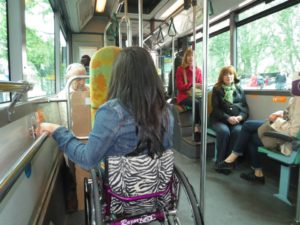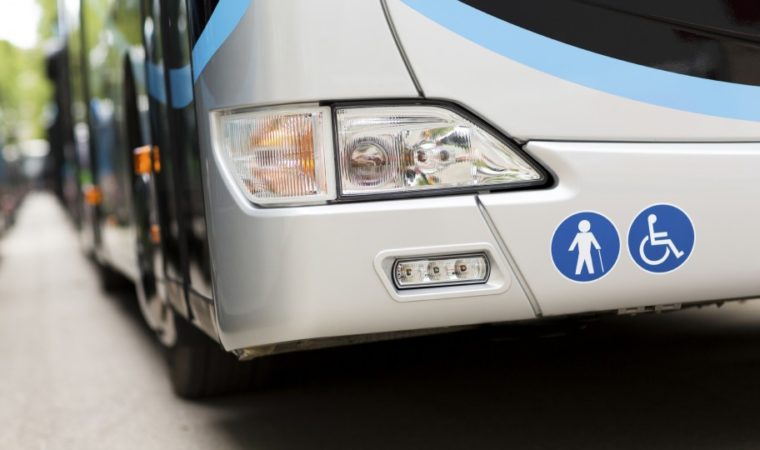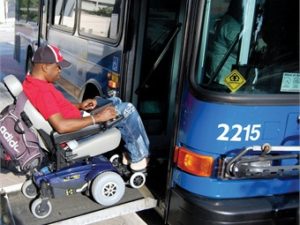Written by: Mackenzie Saunders
If you use a wheelchair or mobility aid, you most likely know how difficult transportation can be for people with physical disabilities. People with disabilities face transportation barriers on a daily basis, ranging from issues such as inaccessible public transit stations to a lack of accessible taxis in the area.
Many people with disabilities don’t know that they are guaranteed equal access to transportation under the ADA. Title II and Title III of the Americans with Disabilities Act state that transportation agencies cannot discriminate against passengers with disabilities. Read below to learn more about the transportation rights people with disabilities are guaranteed under the ADA.
ADA Title II: Equal Access to Public Transportation
ADA Title II states that public transportation agencies cannot discriminate against passengers with disabilities. This means that people with disabilities must have equal access to public transportation, such as trains and buses. Equal access to public transportation includes accessible buses, accessible train stations, and priority seating for people with disabilities on all public transport. Equal access to public transportation also means that all accessibility barriers on public transit must be removed when it is readily achievable to do so.
Unfortunately, people with disabilities face discrimination on public transportation every day across the country. The most common ADA violations that people with disabilities face in regard to public transportation are buses without wheelchair lifts and priority seating, train stations with broken elevators and other physical barriers, and a lack of needed assistance from transit employees while boarding and leaving a train.
ADA Title III: Equal Access to Private Transportation
ADA Title III states that private transportation companies may not discriminate against passengers with disabilities. Private transportation systems included in ADA Title III are hotel shuttles, taxis, private buses, and airport shuttles. This means that people with disabilities must be guaranteed equal access to these means of private transit; all of these private transportation methods must be fully accessible for people with physical disabilities.
Unfortunately, ADA Title III transportation violations happen all too often in the United States. The most common barriers people with disabilities face in private transportation are inaccessible airport shuttles, a lack of accessible taxis, and a lack of employee assistance in boarding and leaving a private transit vehicle.
What to Do If Your Transportation Rights Are Violated

If you have experienced an accessibility violation while accessing public or private transportation, you may be able to pursue legal action. The Spinal Cord Injury Law Firm has vast experience in transportation rights advocacy and lawsuits, and we are committed to fighting for equal access to transportation. Contact us today at 1-877-SCI-FIRM or kelley@spinalcordinjurylawyers.com to discuss your legal rights and learn how we can help you.


